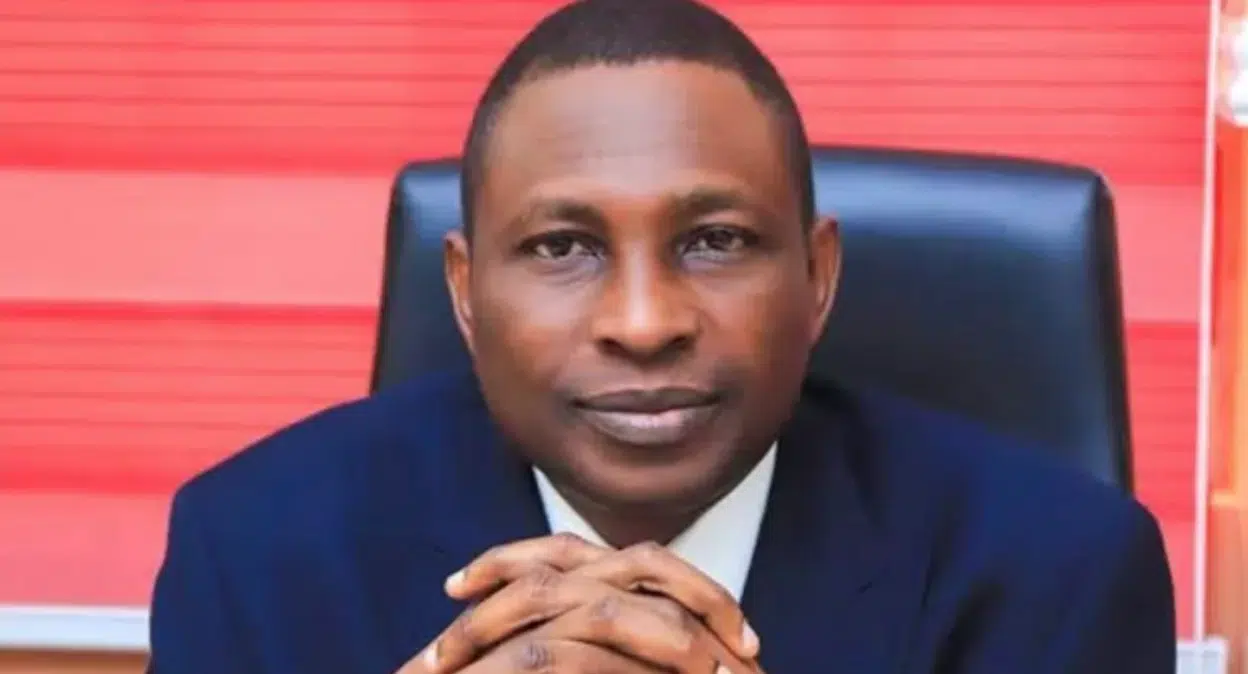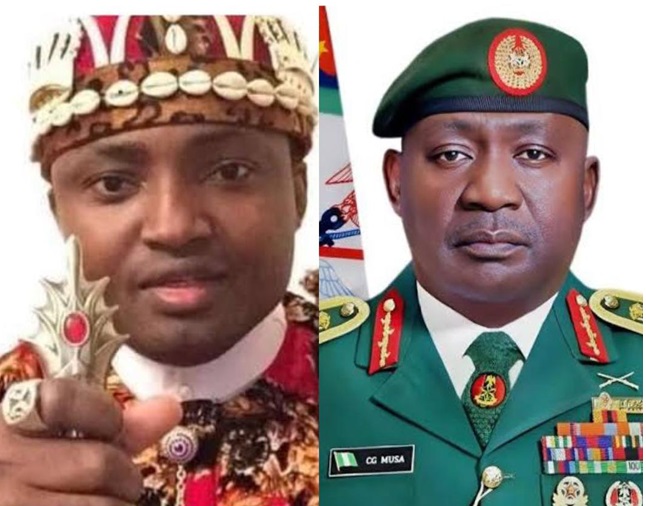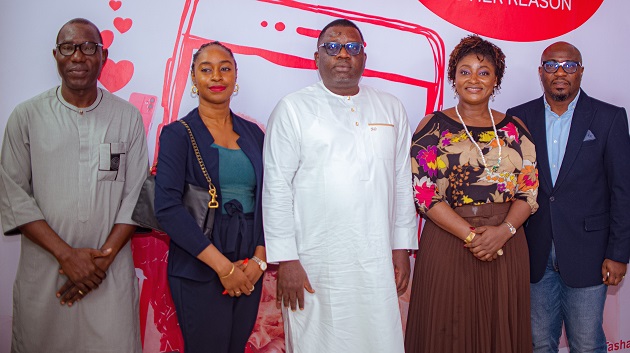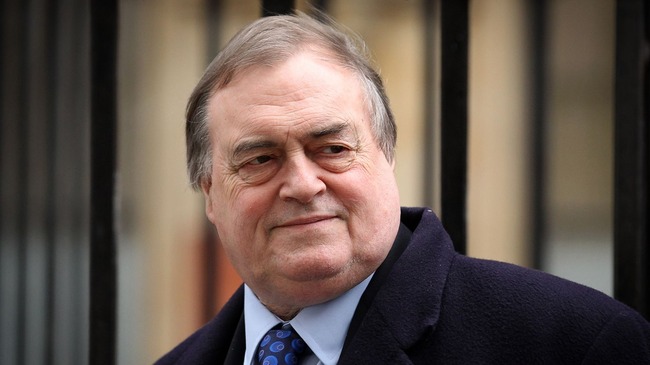
Yenagoa, the capital city of Bayelsa State recently had the distinguished honour of playing host to the Nigerian Guild of Editors (NGE) annual conference. It was a colourful gathering though, but went beyond the pomp and entertaining elements, that are usually associated with such occasions.
It was a moment of reflection for the managers of the Nigerian media space, with the avalanche of its widespread members in attendance, focusing on national discursion and seeking pathways to addressing the challenges of newspaper business in Nigeria and that of the nation.
The theme of the conference, which was its 20th edition, was; Economic Growth and Development Strategies in Resource-Rich Country.
The President of NGE, Eze Anaba, who is also Editor of Vanguard Newspaper (Daily), set the tempo for the discursion, when in his opening remark, he noted NGE recognised the critical role that both a strong economy and a resilient media sector play in fostering a prosperous, informed and democratic society.
Anaba disclosed that the focus of the annual conference was on two inter-linked themes, which were the growth of the nation’s economy and sustainability of the media industry. He identified adaptability to modern trends and availability of resource materials as major threats to the survival of the industry.
According to him, “Media organisations face mounting pressure to adapt to modern trends while staying financially viable and maintaining journalistic integrity. “Now, we thought the only challenge facing the media will be adapting to modern trends.
But the biggest threat to media survivors today is availability of resource materials to produce our papers or to broadcast on our TV stations. “The growth of our nation’s economy directly influences every sector, and our industry is no exception.
Today’s economic landscape demands that we be agile and innovative. This is as he further stated, “Many media houses are devising different ways to survive.
However, as we exploit these strategies, we must keep sight of our mission to provide accurate, trustworthy and independent information to our audiences.
“The Constitution behold on us to hold the government to account. So at the same time, we must consider how we as editors can contribute to the broader economic growth. We know that reliable media support informed citizens, fosters accountability and encourages investments in democratic institutions.
“As editors, we are not only stewards of information and truth but stakeholders in our nations building. Many media houses are devising many means to survive.
However, we must keep sight of our mission to provide accurate and independent information to our audience.”
Anaba also drew attention of his body to some of the shortcomings in the discharge of their duties, with particular reference to the media not reporting on the arrest, and detention of minors on treasonable felony until they were brought to the court for trial.
Such a failure, he said is regretted and urged the body to be more alive and responsive to their duties, saying, “As I speak, no mainstream media will tell anybody where those boys were detained.
‘‘As an editor, I also failed as newspaper editor. It is a shame that in Nigeria, minors were detained all over Nigeria and it took the misadventure of the police and the Attorney General’s office to produce those boys in court, which forced the government to eventually release them.
To avoid such occurrence, he advocated for pooling of resources together by the mainstream media to empower investigative reporting. “What I’m advocating today is that those of us in mainstream media should put resources together, set up investigation unit and streamline our engagement with democracy because civil society groups are taking over our jobs,” he said.
Voices from the other side
His sobering remark was followed reactions from some of the participants. Adebayo in his contribution advised that as journalists, ethics of the profession should be strictly adhere to.
“Let us not be carried away with the uninterrupted democracy that we are celebrating. It is not yet over. We should go back to what we used to be in the past. We should see it as a duty to continue to press forward,” he charged.
While Tony said, “we have allowed our profession to be infiltrated so much that it is difficult to identify who is a journalist. “In the next 10 years, we will have a serious challenge in the profession.
Media houses should give orientation to new intakes. There must be proper orientation for all that engage in me – dia houses so that they know the rules and code of conduct. The guild must continue to undertake some of these responsibilities.
The Chairman of Thisday Media and Arise Group, who is also the Pub – lisher of Thisday Newspaper, Prince Nduka Obaigbena, advised journalists to learn how to cope with the current situation in the country. According to him, ‘‘everybody is feeling the pains in the country.
The time is hard but Nigerian journalists are harder hit, so you have to be tough to cope with the time.” Prince Obaigbena suggested that the current reforms by the President need to be humane and towards supporting the poor and other vulnerable groups in the society.
While the former Governor of Ogun State and veteran journalist, Chief Olusegun Osoba, in his remarks charged the editors to set up a commit – tee to look into the crisis brewing in the Nigeria Union of Journalists (NUJ) over its conference.
He said, “I want to beg you since you are the most united group to intervene in that crisis brewing in NUJ.’’ Sam Amuka, Founder and Publisher of Vanguard Newspaper, lamented the challenges facing the media industry, particularly the print media, which he attributed to the removal of oil subsidy by the present administration.
This is as he said, ‘‘the newspaper industry is dead. Publishing as we know it has died. Recently, newsprint is over N2 million. Every day we publish a newspaper, we don’t make any gain, so why do we continue to publish.
We publish hard copies because we want to remain newspapers. It is essentially for advertisement. It is the adverts that help us to sustain the papers. ‘‘Beside, times are hard, businesses are all going through hell.
As soon as it was announced that subsidy is gone, there is nobody that is not affected by subsidy is gone because if you don’t take a flight, you take a car. “All prices have gone up. Everybody is going through a lot except people in government.
The business side of newspaper production is dead, but we have to survive, that is why we keep striving. “We need government involvement in this business.
The business is no longer sustainable, but we have to sustain it. We need government to come to the aid of the media as a whole. Government should appreciate and support the media.”
Tinubu commends media role in nation building President Bola Ahmed Tinubu, who was represented by the Minister of Information and National Orientation, Mohammed Idris saluted the longstanding legacy of the press, noting its contributions to nation building.
“I salute your individual and collective efforts not just at this time, but even right through to today, as we celebrate a quarter of a century of unbroken demo – cratic experience,” disclosed the minister.
Adding, “In any thriving democracy, the roles of the government and the media are intertwined, both essential in serving the public interest. And of course, the media has a duty to hold elected and appointed officials accountable, and ensure that we are doing our work in a manner that strengthens democracy – not weakens it.
“That important work must be done in a spirit of mutual respect and collaboration, not recrimination and opposition; this alignment enables us to achieve common goals that benefit society at large.
Indeed, our roles are most effective when they are not adversarial but cooperative. ‘‘It is necessary for the media to know that while it is their constitutional duty to hold government account, it is also their responsibility to ensure that they respect the integrity of the media.
“You can do this by being factual and honest, truthful and patriotic. It is not good to push out information for pushing sake. The media has a responsibility to project. Yes, you can criticise, you can say what is wrong with the society.
That is your some your constitutional right but you must not lose sight of the fact that we must have a nation. ‘‘Nigeria must exist before the newspapers. Therefore, to keep Nigeria going as you do this your important job, we have to be sure that Nigeria has to be one.”
Diri on media
Governor Douye Diri in his remarks said that the significance of the media in democratic governance has been recognised since the 17th century, adding that as the fourth pillar of government, the press educates, informs, and entertains, shaping public agenda and debate.
Democracy relies heavily on the press to thrive. According to him, “as ethnic nationalities and diverse interests vie for attention, your work serves as a beacon of hope, promoting understanding and unity.
In these turbulent times around our nation and the world at large, your role as guardians of truth is more critical than ever. “Integrity remains the cornerstone of your profession, building trust with the public and fortifying the foundations of a healthy democracy.’’
Besides, the governor lamented what he called the injustice being meted out on his state by the federal government while calling on the media to expose the harm being done his state.
This is as he charged NGE saying, “As editors and chief communicators in our society, you have the power to shine a light on these injustices.
Therefore, we implore you as editors and influential voices to advocate for policies that prioritise sustainable development and empower local communities. “The discussions are not just abstract concepts.
They directly affect people’s lives, particularly those suffering from resource exploitation, environmental harm, and unequal economic access.”
Please follow and like us:

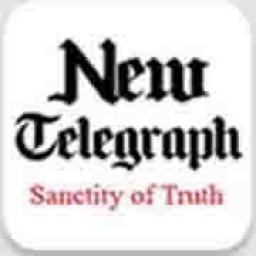 6 hours ago
6
6 hours ago
6





